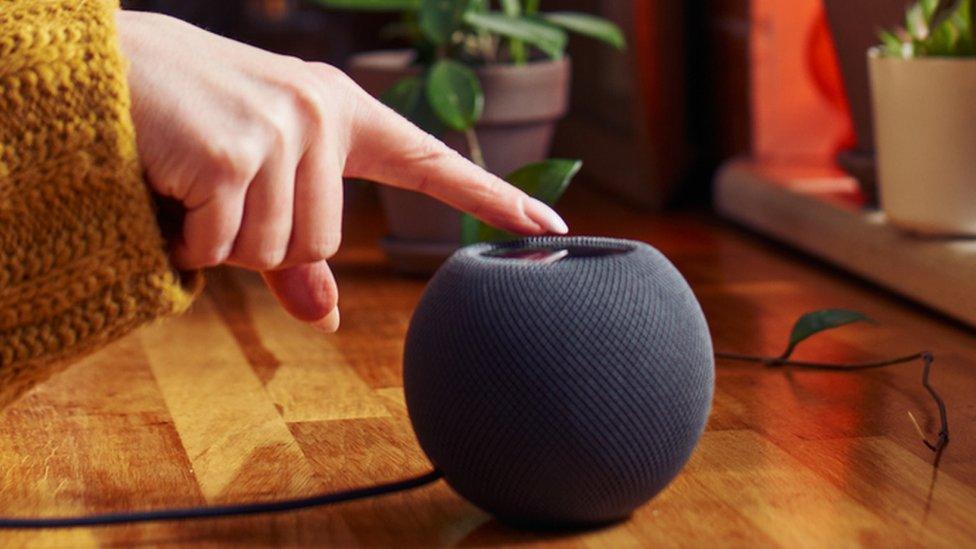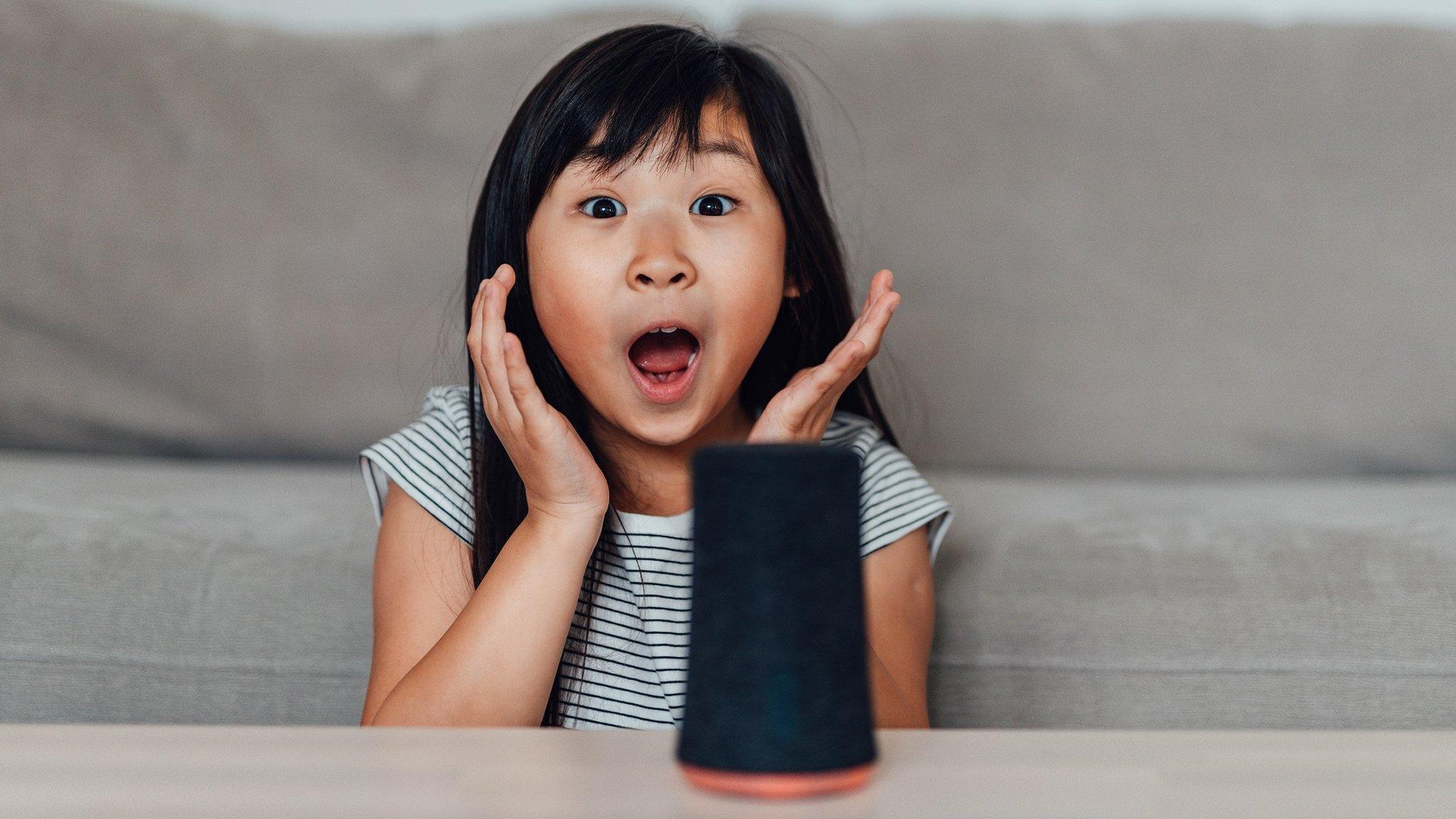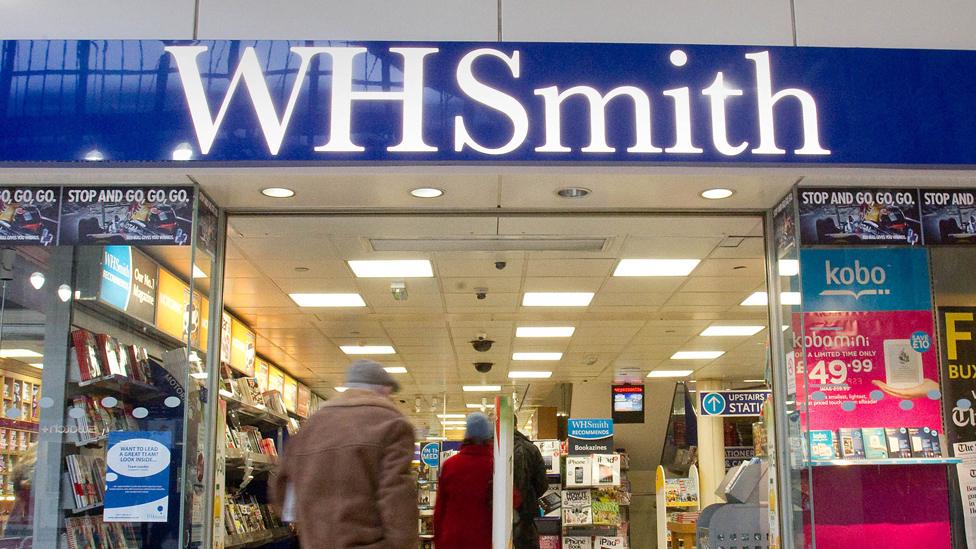Currys boss: Smart speaker sales have fallen off a cliff
- Published
- comments

Sales of smart speakers have "fallen off a cliff" as customers cut back and trade down on electrical items, the boss of Currys has said.
Sales overall fell 7% in the year to 29 April as people bought cheaper goods due to the rising cost of living.
Shoppers also bought more products on credit to spread their costs.
"People aren't as interested in Amazon Alexa as they used to be," managing director Alex Baldock told the BBC's Today programme.
This is surprising as many industry analysts have predicted a boom in smart speakers.
However, the firm said that after a surge in sales during the first stages of the Covid pandemic, people were not upgrading.
Mr Baldock said that shoppers were "being careful with their money".
He said some shoppers were also trading down to buy lower value items.
These included TVs and smaller kitchen appliances like kettles, where an entry level product "still boils water for you", the firm said.
It said it was "wary of optimism about consumer spending power" in the coming year.
'Not so smart'
Smart speakers were "selling like hot cakes" a few years ago, but now sales have come back down, according to Joseph Teasdale, head of tech at Enders Analysis.
He said people do not tend to replace them once they have one, and "maybe you buy a second device for the kitchen, but not much more than that".
But more importantly, "smart speakers just aren't that smart", Mr Teasdale added.
"They're great if you want to set a timer, find out the weather forecast, or listen to the radio. But they're a long way from an all-purpose artificial intelligence assistant," he said.
"If you don't word your request just right, they don't understand you, and half the time they can't do what you want them to anyway."
He added that privacy concerns were part of why there had been a fall-off in smart speaker sales.
"Some people will never want an always-on, internet connected microphone in their homes," he said.
Amazon said that Currys was responsible for "a very small number of our High Street device sales".
"More than eight million people in the UK use Alexa every day and the number of UK customers interacting with Alexa increased 15% last year," the retail giant added.
Credit rise
Currys said more of its customers were using credit to buy more expensive products, particularly if they thought it could save them money in the long term.
For example, energy-efficient washing machines, although more expensive upfront, would save money as bills soared.
Nearly 18% of goods at the chain were bought this way in the year, compared with 13% previously.
"Credit has never been more important for customers than during a cost of living crisis," the retailer said.
Customers were choosing more energy-efficient products because they were aware this was better for the environment too, it added.
Shares in the retailer dropped more than 7% after it said that it was wary about the prospects for consumer demand bouncing back.
Struggling households have been hammered by rising prices over the past few years as food, energy and fuel costs have soared.
To battle inflation, the Bank of England has been raising interest rates - but this has been putting more pressure on people with big loans, such as mortgages.
However, the pace of general price rises has not eased as much as had been hoped, leading to predictions of more interest rate rises.
- Published3 February 2023

- Published30 June 2023

- Published12 June 2023
